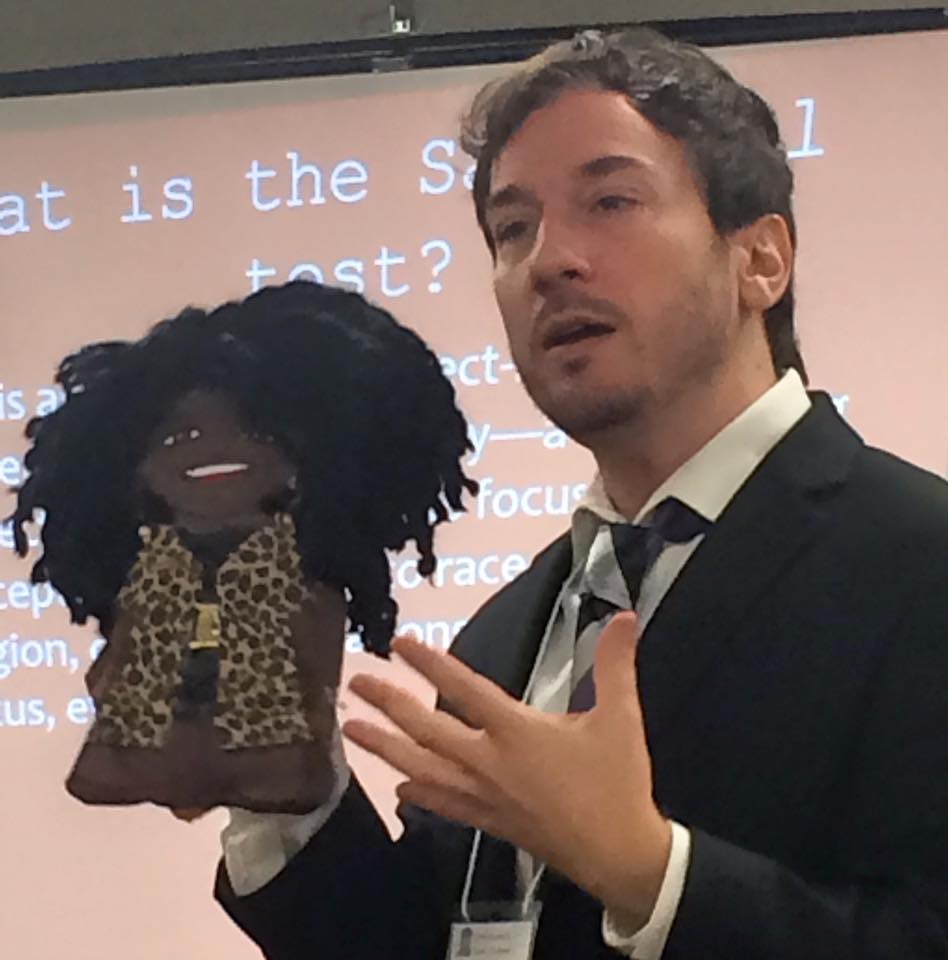News
GSE Professor Timothy Bellavia Presents Sage Doll Test at Education Conference
Assistant Professor Bellavia discussed his early-childhood education research at the 11th Annual Critical Questions in Education Conference in Baltimore.

Recently, Graduate School of Education (GSE) Assistant Professor Timothy Bellavia delivered a research paper presentation at the 11th Annual Critical Questions in Education Conference at the Hyatt Regency Hotel in Baltimore, Maryland.
Sponsored by the Academy for Educational Studies, the conference focused on pressing issues of importance to teachers, professors, administrators, and others involved in schools nationwide.
Professor Bellavia’s presentation addressed one of the conference’s critical questions: “After incidents in Baltimore, Ferguson (and elsewhere): What should schools and teachers be doing?” His presentation, "The Sage Doll Test,” is a twist on the famous 1940s “Clark Doll Test,” named after psychologists Kenneth and Mamie Clark, who conducted a series of experiments to study the psychological effects of segregation on African-American children. Bellavia, using his patented Sage dolls, adjusted the questions from the Clark Doll Test in his interactions with children.
In discussing the results of his findings at the conference, he demonstrated how his “We Are All the Same Inside” doll-making workshops “have helped, and are continuing to help, students shift the focus from self-perceptions in relation to race, gender, religion, creed, orientations, and socio-economic status toward a celebration of a common humanity—rather than our differences,” explained Bellavia.
Assistant Professor Timothy Bellavia, who joined GSE in 2011, is the award-winning author and illustrator of We Are All The Same Inside and Paper, Scissors & Magic: Seven Ways to get your Kids to LOVE Books. Through his company, T.I.M.M.E. (Tolerance in Multi Media Education), Inc., and collaborations with the New York City Department of Education, he’s developed an early-childhood human diversity school curriculum to teach children about acceptance and peace through doll-making workshops.
Although Bellavia presented his own study at the conference, he said what was most exciting about the conference was “the immediate synergy I felt with colleagues from other institutions about the future of education for children today. I am most certain it will lead to further thought exchanges and collaborations in research,” he added.

